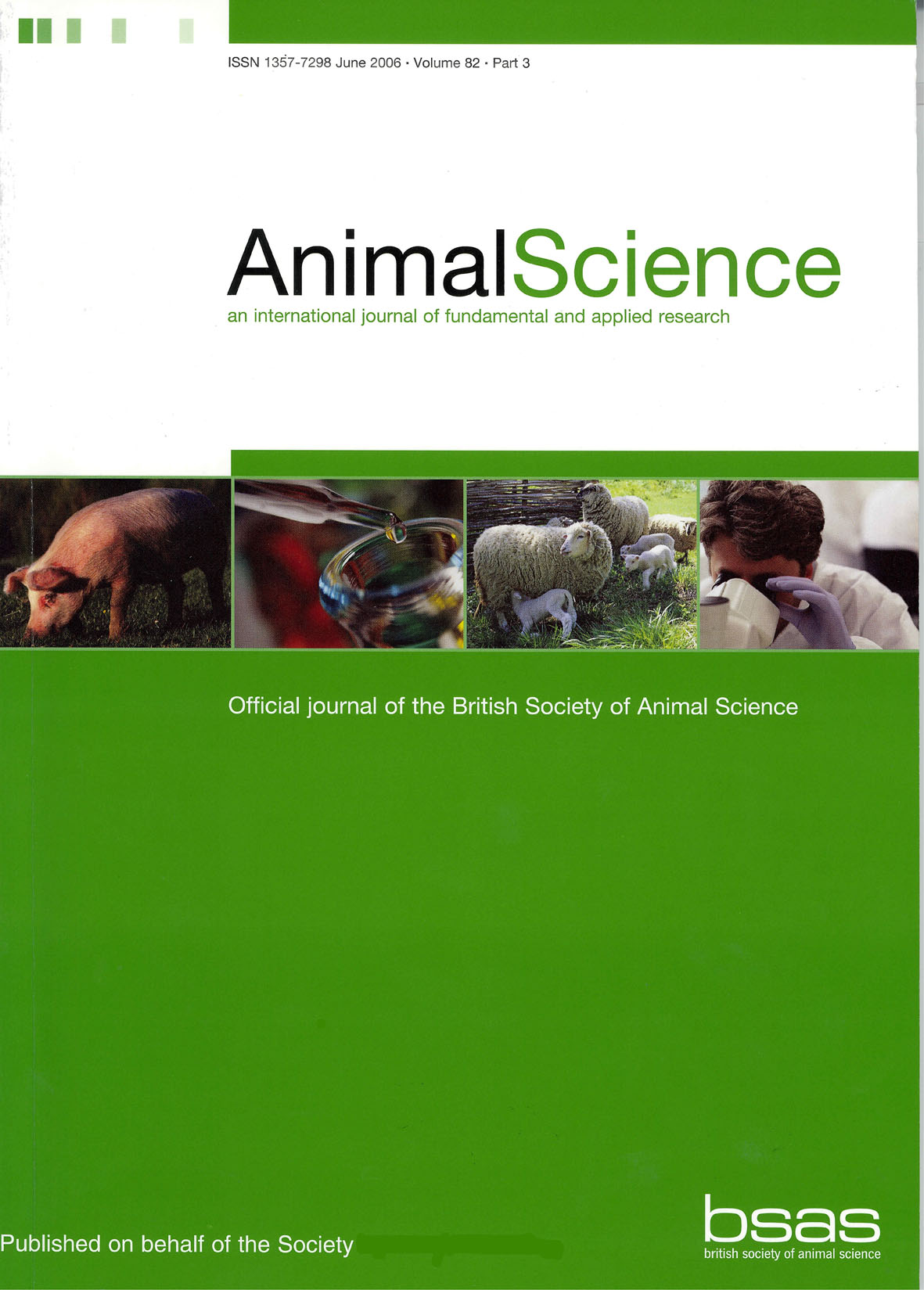Article contents
The effects of dietary oil inclusion and oil source on apparent digestibility, faecal volatile fatty acid concentration and manure ammonia emission
Published online by Cambridge University Press: 18 August 2016
Abstract
An investigation was conducted to test the hypothesis that dietary oil inclusion increases ammonia nitrogen (NH3-N) emission from the manure, due to a negative effect of either unsaturated or saturated oil on microbial activity in the intestine. Dietary oil was included at 45 g/kg, as either crude palm oil (PO), soya oil (SO) or a 50: 50 SO: PO blend (OB), to a basal barley-soya-wheat diet (control) at the expense of dextrose and maize starch. Diets were formulated to contain 13·2 MJ digestible energy per kg and 11·0 g/kg lysine. Four boars were assigned to each dietary treatment, and were transferred to metabolism crates (mean live weight, 74·0 (± 2·89) kg) following 14 days dietary acclimatization. Urine and faeces were collected separately over a 5-day digestibility/nitrogen (N) balance period and a 2-day manure collection period. Inclusion of dietary oil increased apparent digestibility of oil (P < 0·01) and decreased the apparent digestibility of dry matter (P < 0·01) and gross energy (P < 0·05). Dietary oil did not affect the apparent digestibility of nitrogen, acid-detergent fibre, neutral-detergent fibre or hemicellulose. Apparent digestibility of oil was lower when oil was included as PO compared with SO and OB (P < 0·001). The concentration of faecal volatile fatty acid (VFA) was similar in all treatments, although the acetic: propionic acid ratio was lower when oil was included as PO and OB compared with SO (P < 0·05). N balance, manure N concentration and NH3-N emission was not affected by oil inclusion or oil source. In conclusion, dietary oil inclusion reduced apparent dry matter and energy digestibilities, although no effect on fermentation was indicated by digestibility of fibre or faecal VFA content. Consequently, ammonia emission was not affected by dietary oil included at 45 g/kg.
- Type
- Non-ruminant nutrition, behaviour and production
- Information
- Copyright
- Copyright © British Society of Animal Science 2004
References
- 10
- Cited by


